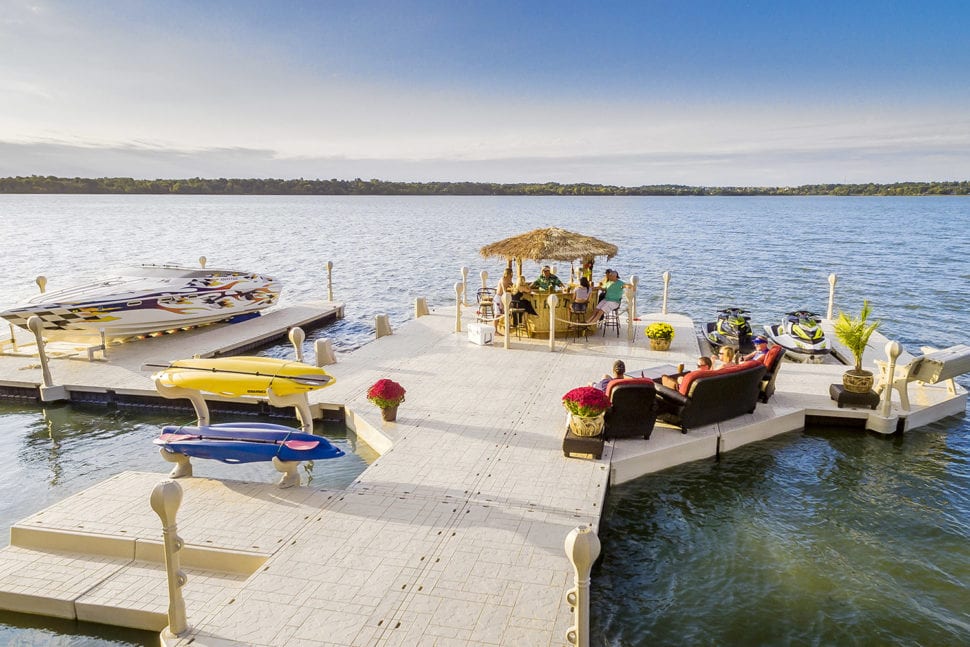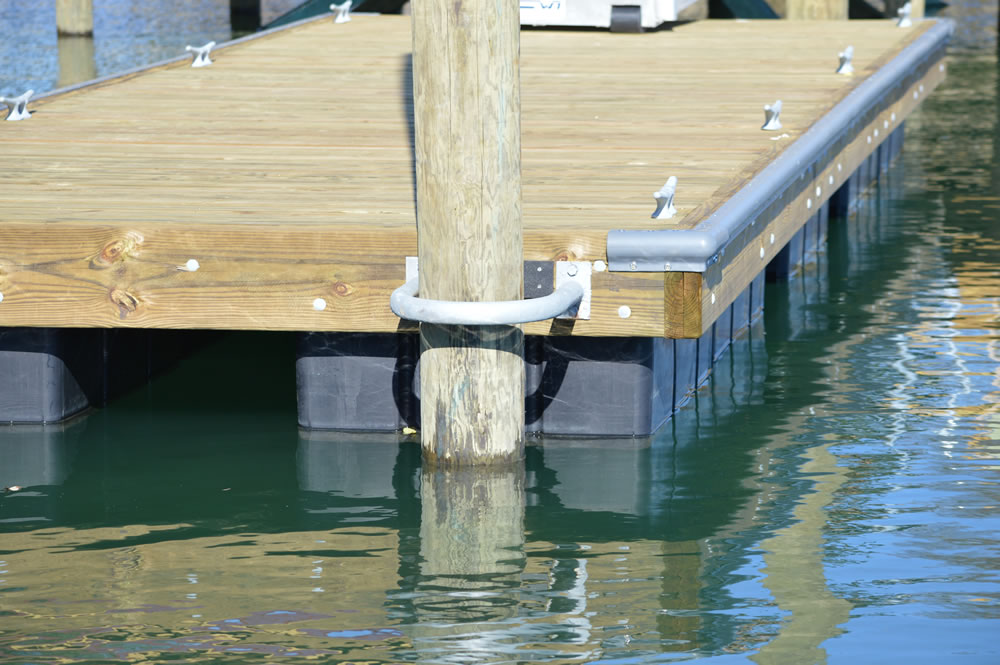Floating Docks: The Suitable Selection for Versatile Water Accessibility
Floating docks present a compelling solution for a selection of water accessibility requires, supplying flexibility that goes beyond conventional mooring options. The modular nature of floating docks facilitates personalization, catering to particular needs.
Advantages of Floating Docks
Floating docks deal various benefits that enhance water gain access to for numerous applications. Their ability to fall and climb with altering water degrees makes them specifically useful in atmospheres with varying tides or seasonal variants. This adaptability ensures that vessels can conveniently anchor without worry for the water's depth, giving a reputable platform for leisure, industrial, and commercial uses.
Furthermore, floating docks are frequently created from sturdy products that withstand corrosion, making them suitable for long-term use in marine environments. Their installation is normally less intrusive than typical set docks, minimizing the ecological effect and facilitating quicker deployment (floating docks). This adaptability enables less complicated relocation or reconfiguration according to individual requirements or ecological changes
Security is one more essential benefit; floating docks can supply secure access for people disembarking or boarding from boats and decrease the threat of crashes connected with unpredictable surface areas. They can be developed to accommodate a variety of devices, such as cleats and fenders, improving capability. On the whole, floating docks represent an effective solution for boosting water access throughout varied fields while advertising safety and environmental sustainability.

Sorts Of Floating Docks
Various types of floating docks accommodate various needs and atmospheres, each made with certain attributes to optimize capability. The most common types include modular docks, which contain interlocking sections that permit easy personalization and growth. These docks are ideal for entertainment use, as they can be tailored to fit numerous watercraft sizes and water conditions.
An additional prominent option is the fixed floating dock, which continues to be secured in position but drifts with transforming water degrees. dock company. This kind is specifically fit for locations with minimal tidal variations, providing steady access for angling or swimming. Additionally, there are drive-on docks, which include a sloped layout that permits boats to quickly drive on and off, making them ideal for individual watercraft and smaller vessels
For business applications, heavy-duty floating docks are offered, constructed from enhanced materials to hold up against significant tons and severe aquatic settings. Last but not least, environmentally friendly floating docks use sustainable products and designs to reduce ecological effect, often incorporating attributes like plant life to sustain regional wild animals. Understanding the different types of floating docks guarantees that individuals can pick the most appropriate remedy for their particular demands.
Installment Refine Overview
An effective setup of floating docks calls for careful planning and focus to information to make sure ideal efficiency and security. The first step involves examining the site conditions, consisting of water deepness, existing, and prospective challenges. This evaluation educates the option of the More Bonuses proper dock products and style tailored to the particular environment.
Following, acquiring required permits is vital, as many jurisdictions have regulations regarding building on water bodies. Once permissions are safeguarded, the installation can continue. Begin by preparing the structure, which may entail anchoring systems or pilings tailored to the dock kind and local conditions.
Adhering to the foundation arrangement, assemble the dock areas according to maker specs. Make sure that all parts are safely attached and straightened to stand up to ecological stresses. Placement the dock in the designated location, guaranteeing it is degree and stable.

Upkeep Tips and Best Practices
After the installment procedure is complete, continuous upkeep plays an essential role in ensuring the longevity and capability of floating docks. Regular evaluations should be performed to recognize any kind of indicators of damage, wear, or wear and tear - dock company. Look for any loosened fittings, cracks, or separation in the dock sections, as these can compromise architectural honesty
Cleaning up the dock is important to eliminate debris, algae, and other accumulation that can influence its appearance and security. Make use of a mild stress laundry periodically to keep tidiness without triggering damage to the surface area. Furthermore, using a protective sealant every few years can aid enhance longevity and resist ecological wear.
Take note of the mooring lines and supports, guaranteeing they are secure and totally free from corrosion. Change any type of abject elements promptly to avoid risks. Seasonal changes might additionally be required; during extreme weather, enhancing the dock or repositioning can avoid damage.
Applications for Floating Docks
Floating docks offer a multitude of applications, accommodating both entertainment and industrial demands. In leisure setups, they supply seamless accessibility to rivers for tasks such as boating, fishing, and swimming. Their flexible nature permits installation in differing water degrees, making sure steady and safe accessibility regardless of tidal fluctuations.
Readily, this link floating docks are essential for marinas and beachfront organizations. They facilitate the docking of vessels, making it possible for reliable loading and discharging of items. Their modular layout allows for simple growth or reconfiguration to accommodate changing organization needs, making them ideal for watercraft rentals, trip procedures, or fishing charters.
Additionally, floating docks are utilized in ecological applications such as water study and environment remediation. They can function as systems for scientific researches, checking water high quality, or carrying out wild animals studies without troubling sensitive ecosystems.
In industrial contexts, floating docks are utilized in building projects, offering accessibility to hard-to-reach locations for devices and personnel. Their convenience, toughness, and minimal influence on the atmosphere make them an ideal selection for a large array of applications, improving both functionality and accessibility in different water-based settings.
Final Thought
To conclude, floating docks represent an optimum service for diverse water access requires, owing to their adaptability, durability, and modular style. These structures assist in secure mooring for different applications while minimizing environmental influence throughout setup. The reduced maintenance needs better boost their practicality. Floating docks offer as a useful possession for recreational, business, and ecological projects, ensuring trusted access to waterways and advertising lasting methods in aquatic settings.
Floating docks existing an engaging remedy for a variety of water access requires, offering flexibility that transcends standard mooring choices.Floating docks offer countless benefits that improve water gain access to for various applications. Overall, floating docks stand for an effective remedy for improving water accessibility throughout diverse sectors while advertising safety and ecological sustainability.
One more useful source preferred option is the stationary floating dock, which continues to be anchored in place however floats with changing water degrees.In conclusion, floating docks stand for an optimal option for diverse water accessibility requires, owing to their adaptability, durability, and modular style.